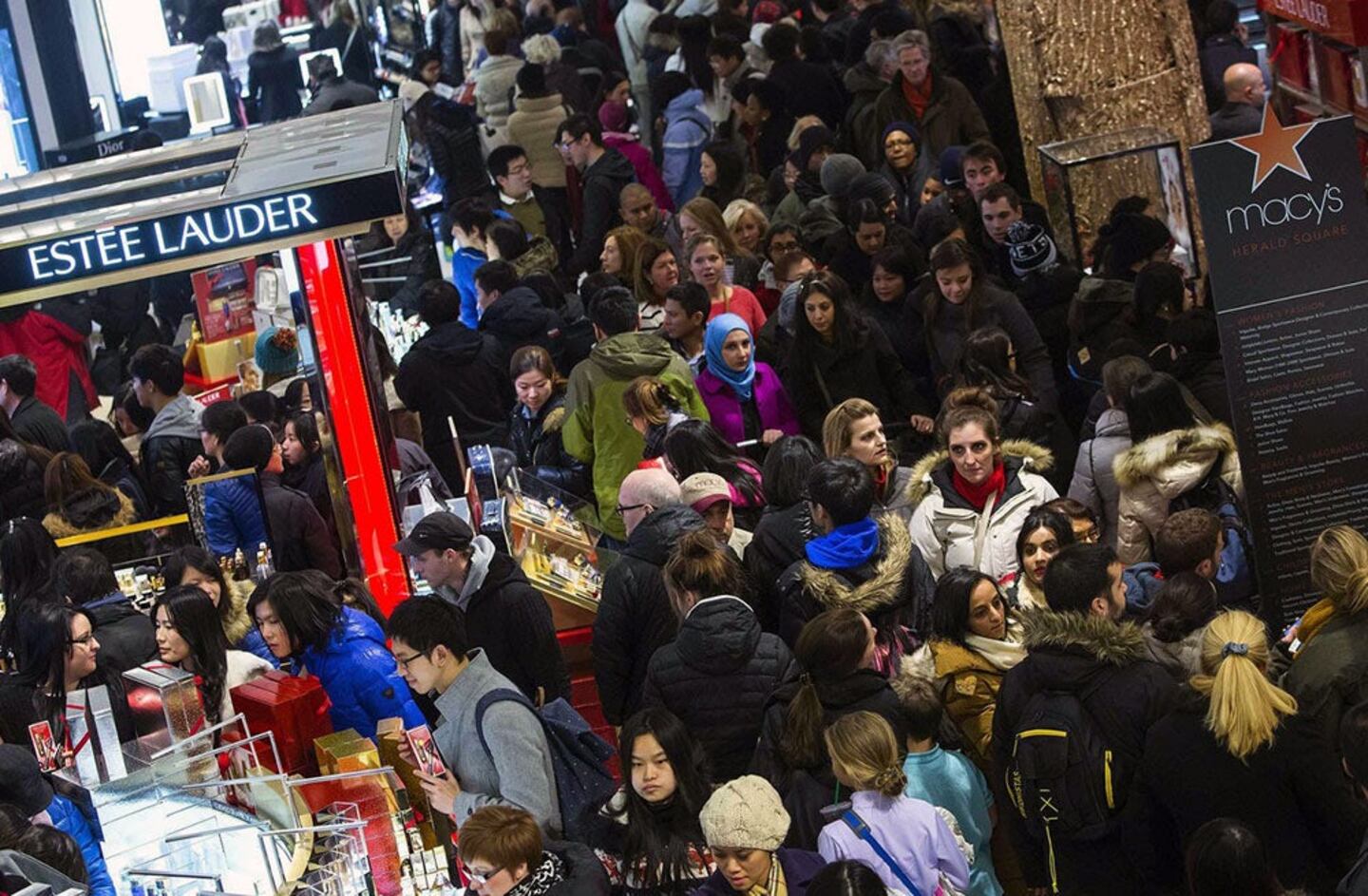
The Business of Fashion
Agenda-setting intelligence, analysis and advice for the global fashion community.

Agenda-setting intelligence, analysis and advice for the global fashion community.

NEW YORK, United States — The initial Black Friday results have reinforced that this US holiday shopping season will be one of the best in recent memory. But even in good times, there are concerns for retailers.
The takeaway from the past few days is that Americans are spending at unprecedented levels, and the overwhelming majority of that growth — if not all of it — is online. While brick-and-mortar chains can rightfully claim their stores help boost web sales by giving shoppers a chance to see products in person, the web sales are less profitable.
“Stores have been gaining more traction, but online is growing faster,” said Poonam Goyal, an analyst for Bloomberg Intelligence. “The higher shipping expenses are still going to be a bigger drag on margin.”
The shift online means chains have to spend more on already-elevated shipping costs, which will eat into profit margins, she said. On top of this, many retailers now offer free or reduced rates for mailing packages during November and December, which only exacerbates the hit to results.
ADVERTISEMENT
The added complexity and reduced profitability is hanging over this holiday season that, while expected to be a blockbuster, is also seen as possibly the last standout Christmas of the current economic cycle. Investors started souring on retail stocks earlier this month amid concern that the consumer-spending environment could be at the peak of the mountain and will soon be followed by decline.
Americans spent $50.6 billion online this month through Sunday, a 20 percent increase from a year ago and spearheaded by a 24 percent surge to $6.2 billion on Black Friday, according to Adobe Analytics. Cyber Monday is expected to add another $7.8 billion — an 18 percent year-over-year gain for that day.
Overall, physical stores had a disappointing four-day period with visits down 6.6 percent, according to retail analytics firm RetailNext. But not all brick-and-mortar chains and categories are created equal. For example, sales of electronics and appliances rose 6.4 percent over the weekend, according to Customer Growth Partners. The researcher reiterated its forecast for holiday sales overall to grow 5.1 percent to $701 billion.
Most retail stocks reacted positively on Monday, with the SPDR S&P Retail ETF rising as much as 1.8 percent, more than the S&P 500 Index’s climb of 1.5 percent. GameStop and Victoria’s Secret owner L Brands led the way.
The extra expense of e-commerce comes on top of the industry’s traditional holiday challenge of balancing door-buster deals with profitability. So far, discounting levels appear to be similar to last year, according to Jefferies Financial Group, although price cuts were deeper for some categories such as toys.
“Shoppers and stores alike will have a happy holiday this year — assuming retailers can maintain their margin discipline,” said Craig Johnson, president of Customer Growth Partners. “Looking forward, the key issue is whether this pace can be sustained into the new year and beyond.”
By Matt Townsend; editors: Anne Riley Moffat, Jonathan Roeder and Lisa Wolfson

As the German sportswear giant taps surging demand for its Samba and Gazelle sneakers, it’s also taking steps to spread its bets ahead of peak interest.
A profitable, multi-trillion dollar fashion industry populated with brands that generate minimal economic and environmental waste is within our reach, argues Lawrence Lenihan.
RFID technology has made self-checkout far more efficient than traditional scanning kiosks at retailers like Zara and Uniqlo, but the industry at large hesitates to fully embrace the innovation over concerns of theft and customer engagement.
The company has continued to struggle with growing “at scale” and issued a warning in February that revenue may not start increasing again until the fourth quarter.